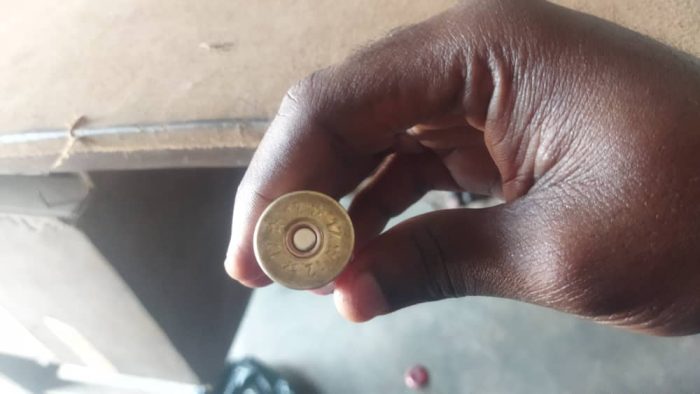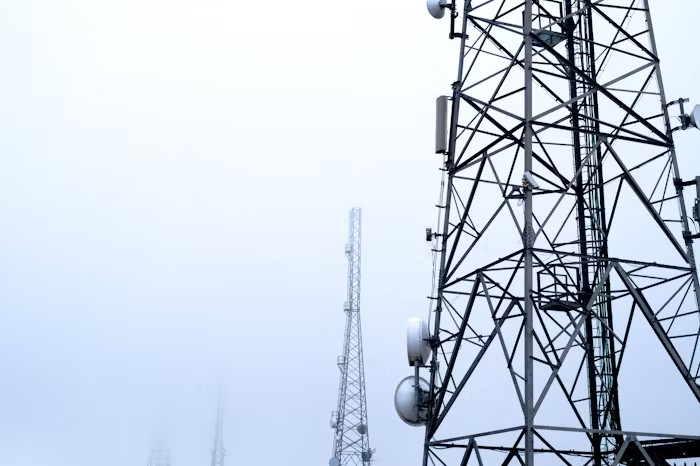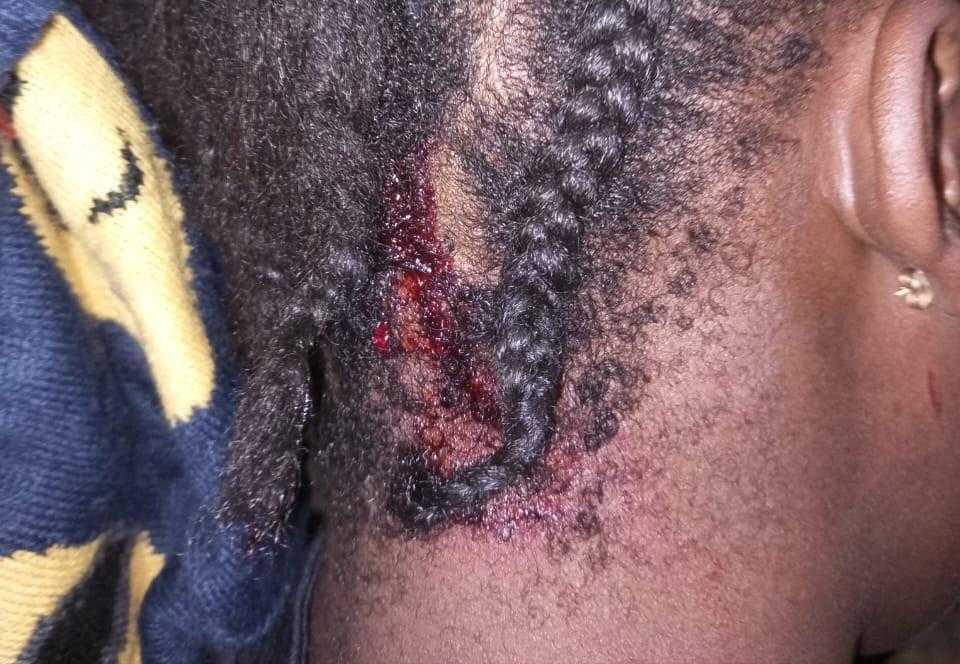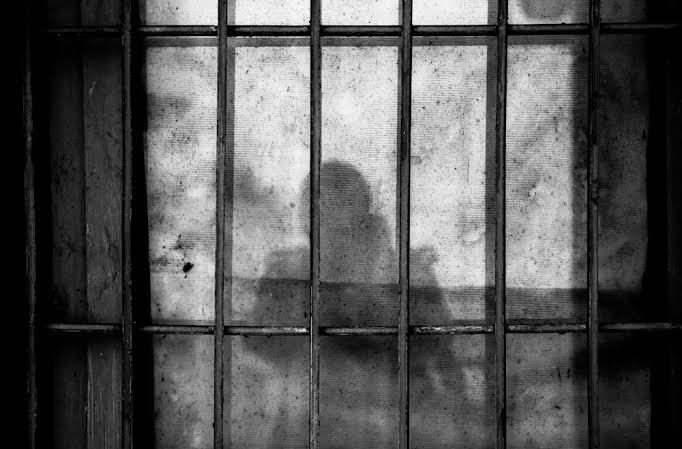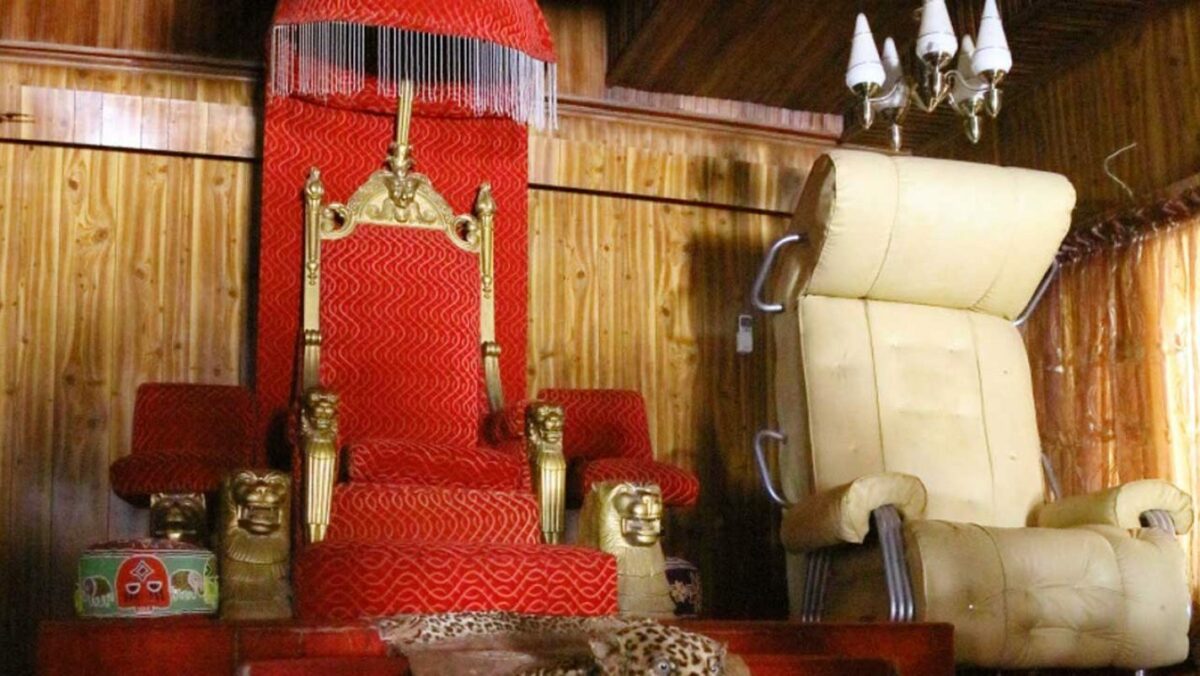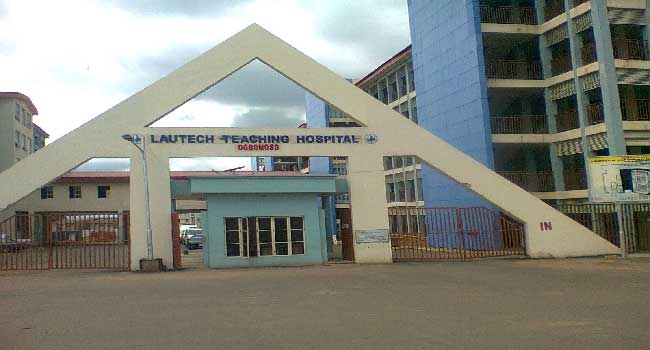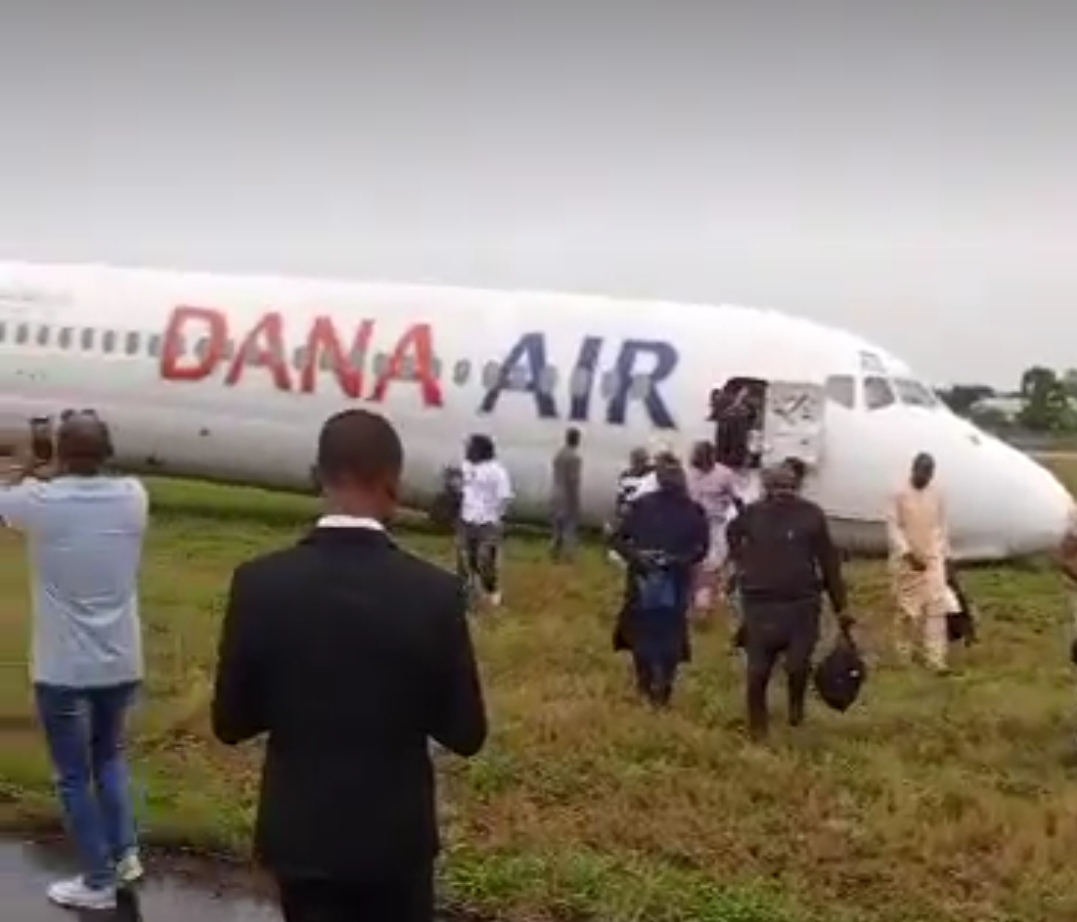At least 1,192 people were fatal victims of insurgency, while another 3,348 were abducted by terrorists in Kaduna State in 2021. With the state suffering an average of nine abductions a day, investigative journalist DANIEL OJUKWU probed how the state, security agencies and residents are responding to the crisis. His findings expose terrorists, state actors, women, children and vigilantes engaging in an unending war.
“Yes! I am a terrorist. I have been one for over 10 years now, but you have to call me back because I am going to attack somewhere now,” Dan-Makaranta, also known as Apabakura, confessed to FIJ.
He, and many others like him, believes he is fighting a just cause against a government intent on marginalising his people, and he does not care who falls victim until things change in the manner he wants them to.
He blames the government for bringing the state to its knees, but accuses the same government of aiding his work by supplying the tools with which he and his sect fuel their war.
“Abi you fit see AK-47 for bush?” He quizzed this reporter at some point during his interview, before saying people in power help provide his weapons.
On the day of this interview, he was preparing for an attack in the Giwa Local Government Area of Kaduna State. To him, it was just another Tuesday.
ABDUCTED
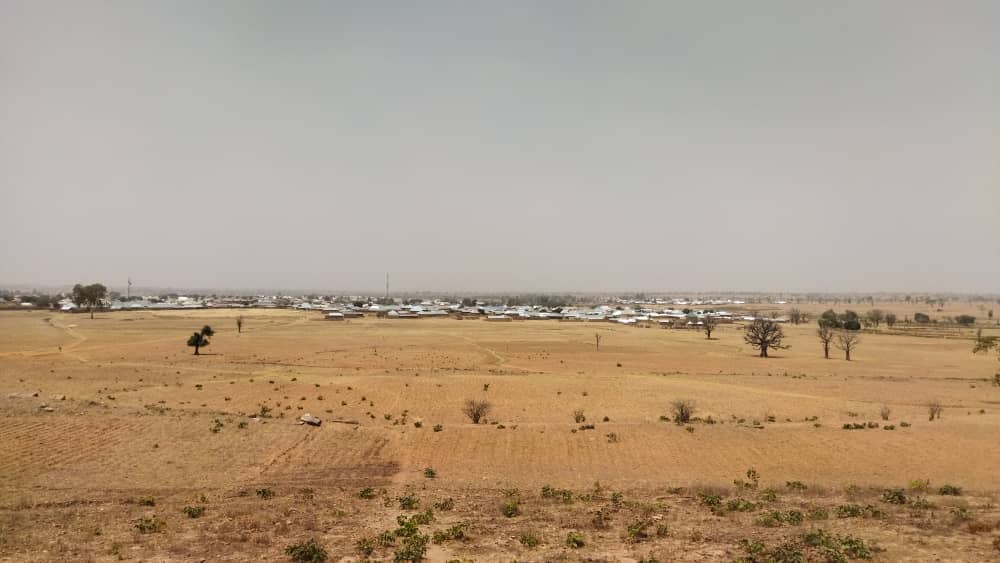
On February 11, 2021, Ibrahim Sanusi, a resident of Giwa Local Government Area, was watching some videos in his room when a bang on his front door jolted him out of bed.
The time was 10:30 pm. He recalled that it was odd for anyone to come looking for him at that time, but given the way his apartment was designed, he did not think too much of it.
His apartment shared a fence with his family house which stood out among houses in the neighbourhood with its bright lilac painting and tall black gate. Anyone from the main house could have been knocking at that time, after all he lived in what used to serve as the boys quarters of the Sanusis.
Quickly, he reached for the door, but he would later realise that terrorists who had come with the intention of abducting him for ransom – they would later demand it from his father who lived next door – had broken the door and let themselves in.
Although they came for him, the eight masked, armed terrorists abducted both Sanusi and a friend of his who had come around to pass the night.
“One of them pointed a gun to my ear, while another pointed one to my belly. They took my friend out to knock on my father’s door, but he did not respond,” Sanusi told FIJ.
“After a while, they stopped trying, and decided to take us both away on their motorcycles. They took us to a hill and decided to rest for a while before blindfolding us and taking us to another location.”
Recounting his ordeal to this reporter, he said he did not know what this new location was, or where they were, as his abductors kept him and his friend blindfolded.
“While there, they told us that they had been paid to kill us, but would ransom us instead for N30 million, as an informant had told them my father could pay that much in three days.”
At this point in his narration, Sanusi had tears welling up in his eyes, and requested for the video interview to be stopped, as he would rather speak off camera and in his native Hausa.
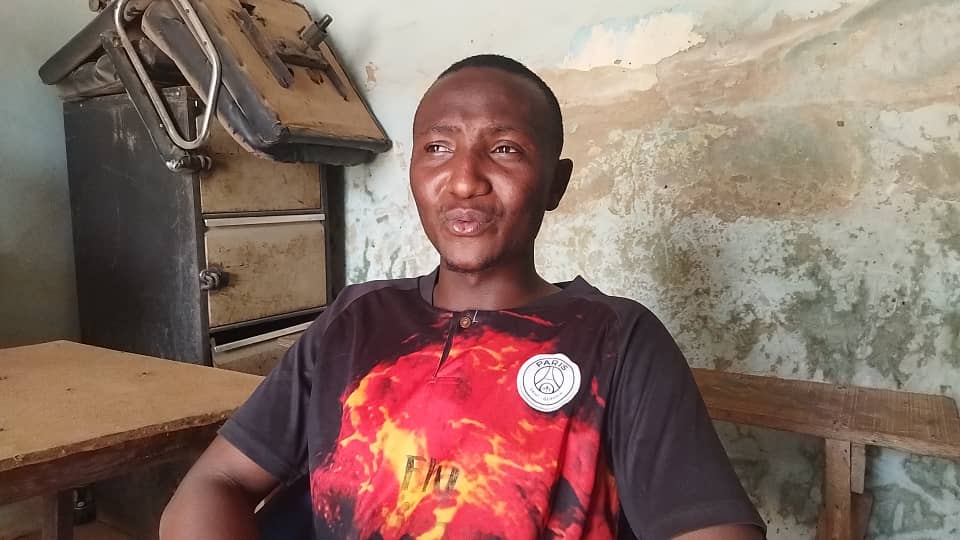
“They used my phone to call my father, and negotiated our ransom for 11 days. They asked for N10 million, but later settled for N3 million after much negotiations,” he continued.
After the ransom was paid, the unexpected happened. A gang Sanusi described as leaders of his captors killed the man sent to make the ransom payment, and left with the money, leaving both captives to an unknown fate. Another N500,000 was negotiated and paid to secure their release.
When our reporter asked if he knew this ‘informant’ who had fed the terrorists with information, he said he had some suspicions, but was uninterested in pursuing the matter further as he only wanted to move on. He also never reported to the police.
In northern Nigeria, being an informant to terrorists is a lucrative business that many residents have embraced as the crisis continues. While the terrorists profit, the locals profit alongside.
READ ALSO: SPECIAL REPORT: In Niger, Working as Informants for Bandits Is a Lucrative Side Hustle
IN GIWA LGA, WHEN INSURGENCY HITS, RESIDENTS RUN TO KADVIS, NOT THE POLICE
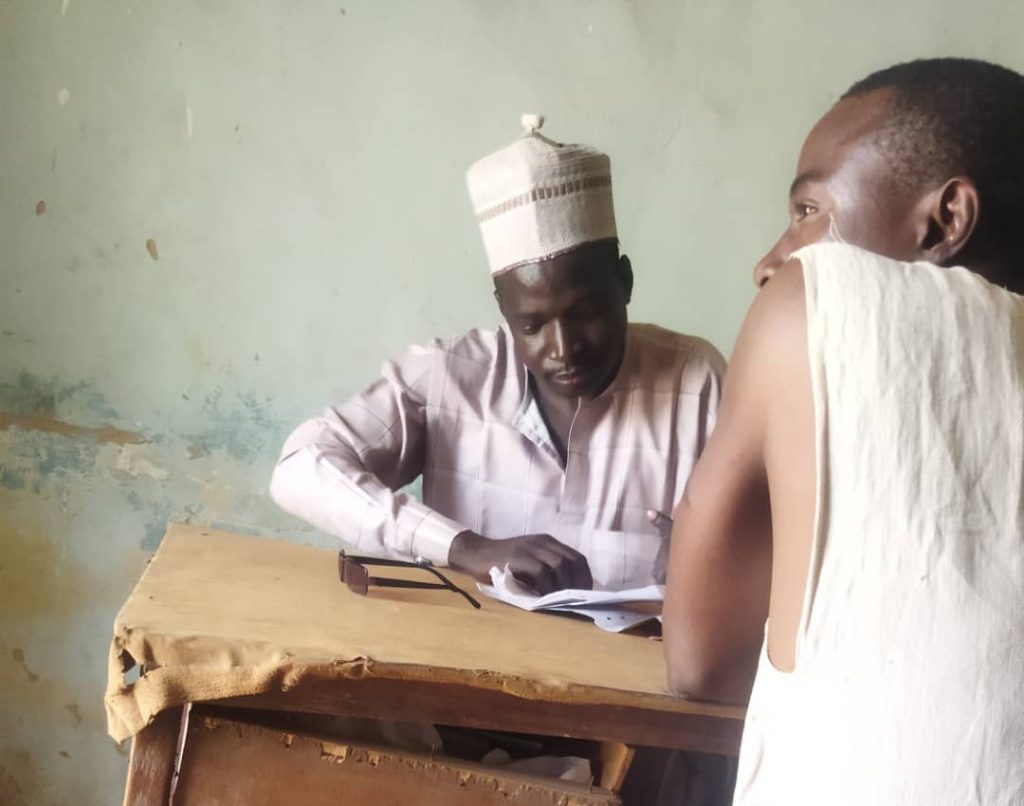
Giwa LGA has recorded over 100 abductions since the start of 2022. Here, residents go missing almost on a daily basis, but victims’ relatives prefer to report to unpaid members of the Kaduna State Vigilante Service (KADVIS) rather than the police.
Commanding the KADVIS in this region, Usman Sarkin Dawa gets reports of abductions and killings, and compiles a list which he submits to Bala Galadima, his superior in Zaria.
He told FIJ that people in his area were shook by the acts of terror, and would regularly come to report cases of abductions with the hope that his group would help them secure their release.
While this reporter was in his office, he sent for some of the now-released abductees to come see him, but when they learnt they were going to be asked to tell their stories, they fled the scene after cussing in Hausa.
This reporter saw firsthand what Usman meant when he said residents were disturbed by the events they had been forced to live with.
Some of the most recent victims who had either been killed or abducted were captured in the table below:
07-2-2022 – BANDIT ATTACK IN GIWA
| 1 | Rabe Alasan | Killed |
| 2 | Yakubu Alasan | Gunshot injury |
08-2-2022 – BANDIT ATTACK IN KWATANRI
| 1 | Lurwanu | Sharu |
| 2 | Jafaru | Mamuda |
| 3 | Kabiru | Sinusi |
| 4 | Hudu | Mamuda |
16-3-2022 – BANDIT ATTACK SCHOOL IN KADUNA
| 1 | Hadiya | Hasan |
| 2 | Uzaihatu | Abdullahi |
| 3 | Nana | Abdullahi |
| 4 | Idris | Jibrin |
Usman and others like him are not funded by the state or empowered to tackle insurgency, but they have earned the trust of residents like Regina Katung, a February 12, 2022 victim of attempted abduction.
“Around 10 in the night, eight bandits came to my house, but two entered while the others stayed outside. They took my husband, daughter and one boy who stays with us,” Katung told FIJ.
“Initially, they took me too, but after they realized I had a leg injury, they returned me and asked that I do not raise an alarm, while they rode off on their motorcycles with the others.
“Immediately they left, I started shouting and calling out to neighbours, and they helped to call the vigilantes who came around to chase after the terrorists.”
Hope, Regina’s daughter, recalled that the terrorists rode for hours, but were caught in Danza by men of the KADVIS who engaged them in a shootout. The vigilantes killed one of the terrorists and secured the release of the three captives.
N33,000 FOR 25 BULLETS, N50,000 FOR LOCAL GUNS — BEING AN UNPAID VIGILANTE IS COSTLY
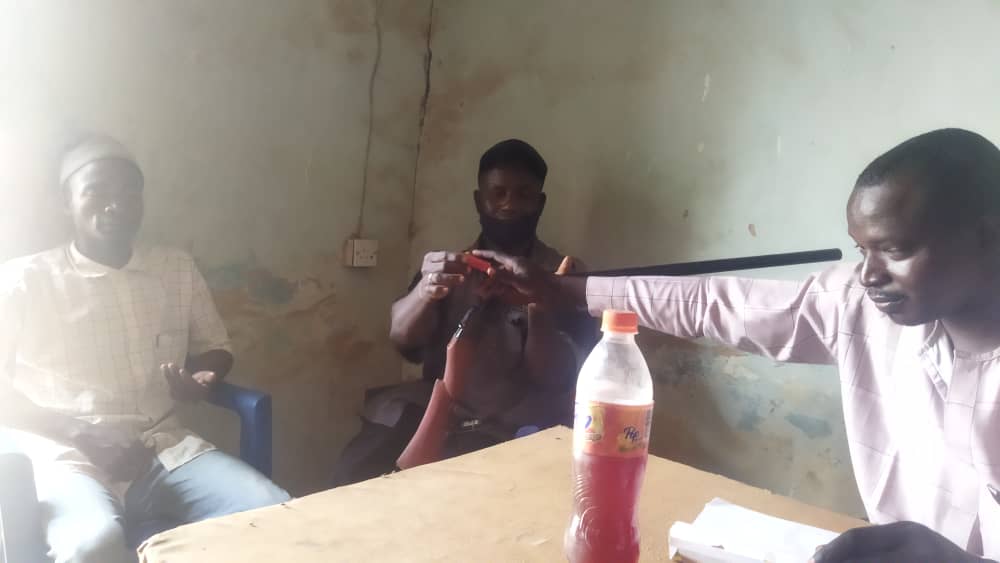
In Kaduna, KADVIS is a recognised service that is funded by the state and empowered to help complement efforts of security agencies.
However, while many work for KADVIS and are regarded as commanders and agents of the service, not every one of them is licenced to operate. While the unpaid ones work hand-in-hand with the paid uniformed members, they buy their own bullets, a pack of which sells for N33,000 and contains 25 bullets, and either make their own guns or buy.
This is not a general problem for the KADVIS. It is only a problem that affects the local volunteers who have been defending the villages since 2019.
On the other hand, recognised KADVIS servicemen are properly uniformed and rub soldiers with other recognised officials of other security agencies.
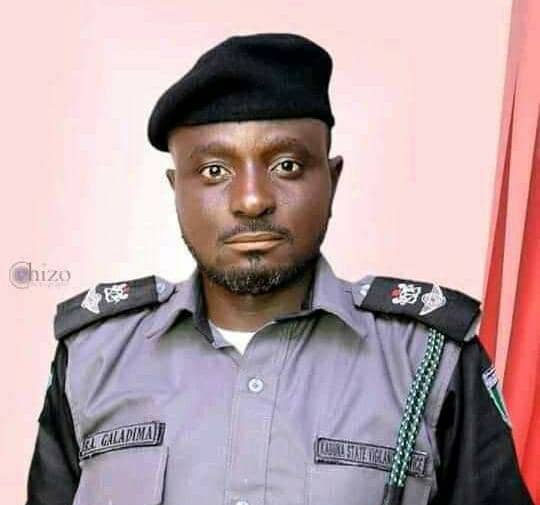
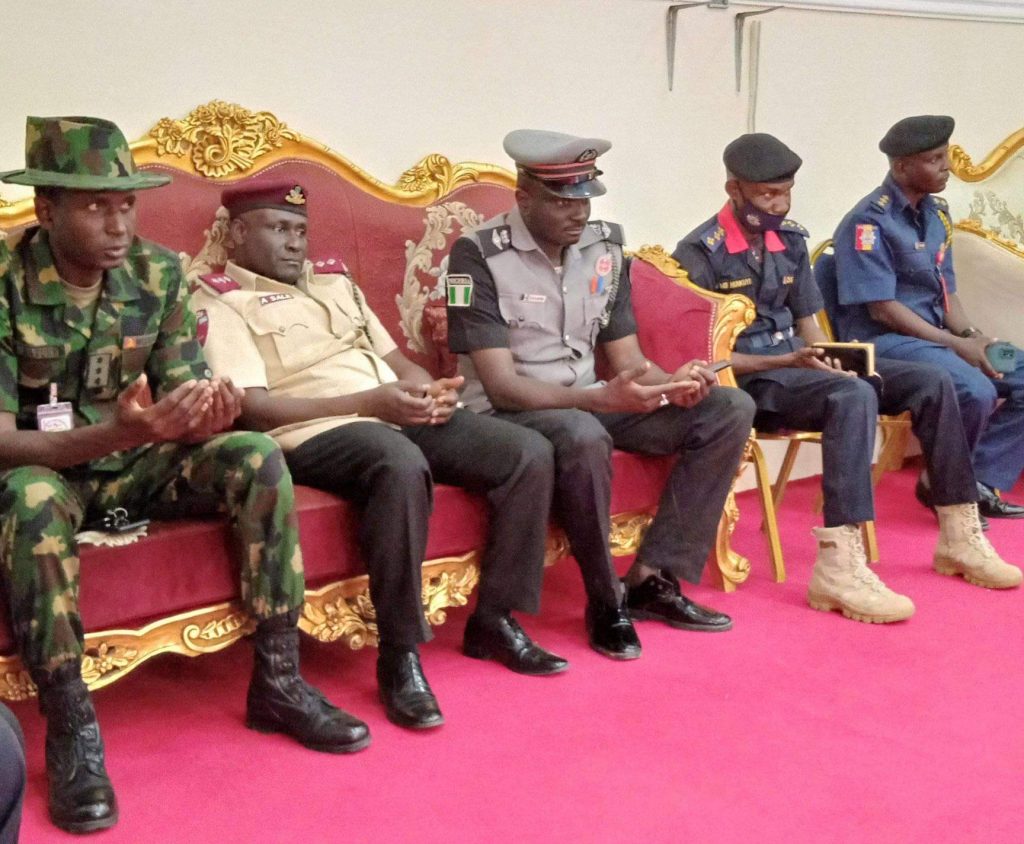
On condition of anonymity, a vigilante member of KADVIS told FIJ that they expend up to three packs of bullets during an attack, and buy them with their own money.
He said it was only on one occasion in 2022 that Bala Galadima, the licenced and uniformed Commandant of the KADVIS in Zaria Local Government Area, sent a pack of bullets to them.
Galadima, on the other hand, enjoys state support, and works in tandem with federal security agencies.
When this reporter contacted Galadima for comments on the segregation in the KADVIS, he said, “Those ones have not been mobilised yet. Their appointments have not been approved. When they are approved and inaugurated, they can now be funded.”
GUNS FOR WOMEN AND CHILDREN, TILES FOR BULLETS
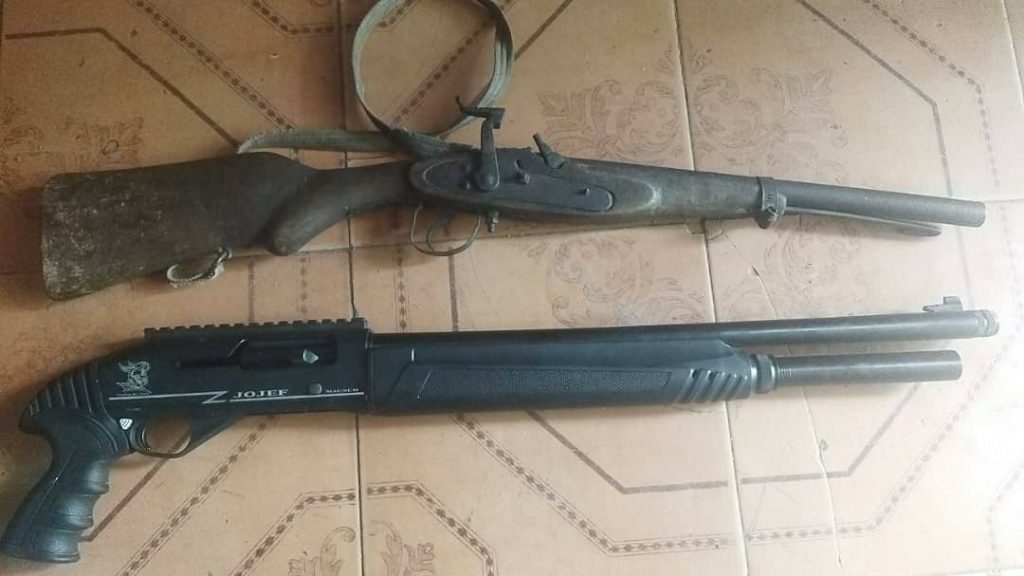
With the threat of potential terrorist attacks, residents of Kaduna have begun to take extreme measures to protect themselves. Most of the men who go out to tackle the crisis head-on are mostly unlicenced to use guns. But with the price of a local gun as low as N50,000, women and children now own it.
Idris Barau, a retired beekeeper and current volunteer vigilante in the state, told FIJ he taught his 14-year-old son to shoot a gun, and when he travels, he can rely on the teenager to protect the family of 14 he leaves behind.
Barau refused this reporter’s requests to take pictures of his abode and family members, but in his parlour, one of his two wives appeared, and his children moved in and out at will.
He had two houses, one for each wife, and the two wives birthed 12 children.
“We don’t have fear anymore. If anyone shows up, it is either he is dead or I am dead. We don’t have that fear anymore,” Barau told this reporter.
“I taught my wife to shoot, I taught my 14-year-old son to shoot a gun. She [his wife] is a graduate of biochemistry, this is her gun.”
“The danger is, when our people go out to tackle terrorists, they shoot at our people, but we are bulletproof. Believe it or not. A lot of us have that immunity to shoot at bandits and not get shot at.”
To Barau, the fear of death has begun to wane as he believes he and others who tackle insurgency in Kaduna are now immune to bullet wounds. True or not, the more people share this belief, the more weapons will litter the state, not just in the hands of the vigilantes, but their wives and children.
However, his claim cannot be substantiated as terrorists continue to kill vigilantes in the state as seen here, here, here and here.
Usman Sarkin Dawa also confirmed his wife and the wives of other vigilantes under his watch have guns of their own “for self-protection”.
For the locally made guns, they can either be designed to shoot standard bullets or modified materials that bear semblance to bullets. One of these materials is floor tiles.
Barau pointed and dramatically hit the floor to show this reporter where they get their bullets for some of the locally made guns. “You cannot ban tiles,” he says. Floor tiles have become popular among bullet makers in the state, according to him.
POLICE, GOVERNMENT WORK WITH TERRORISTS?
Earlier, FIJ found that more residents would rather approach KADVIS officials than the police. This reporter later found that even the vigilantes had reservations about taking captured bandits to the police.
“A lot of them were captured, we took them to the police and they were released after one or two weeks,” Barau said. He also said terrorists pay millions of naira to the police to secure the release of their captured colleagues.
EXISTING INTELLIGENCE IN IDENTIFIED SYNDICATE LEADERS AND THEIR LOCATIONS
| S/No. | Names | Phone number | Location |
| 1. | Alhaji Ori | Unavailable | Galadimawa |
| 2. | Alhaji Isiya Baban Buderi | Unavailable | Rima |
| 3. | Alhaji Dan Duma | Number concealed by FIJ | Aguwan Baushe |
| 4. | Rae Danduma | Madugu | |
| 5. | Buharin Yadi | Number concealed by FIJ | Yadi |
| 6. | Yebi (Alhaji Labi’s brother) | Unavailable | Yadi Yadi |
| Alhaji Labi | Number concealed by FIJ | ||
| 7. | Sakatare | Unavailable | Toroko |
| 8. | Apabakura | Number concealed by FIJ | Yadi |
| 9. | Dan Makarantayadi | Number concealed by FIJ | Yadi |
| 10. | Kwalameri | Unavailable | Kwanar Bataro |
| 11. | Isiya Dan Wasa | Number concealed by FIJ | Lamba |
| 12. | Alhaji Ibrahim Mulasa | Unavailable | Mararraan Yakawada |
| 13. | Hardon Yadi | Unavailable | Yadi |
| 14. | Gana’i | Number concealed by FIJ | Yadi |
| 15 | Ali Shehu | Number concealed by FIJ | Zaria |
| 16. | Yellow | Number concealed by FIJ | Sabon Birni |
| 17. | Anyo | Number concealed by FIJ | Mai Daro |
| 18 | Buderi | Number concealed by FIJ | Rima |
In a document made available to FIJ by a source who sought anonymity, 18 named terrorists were listed as responsible for age-long attacks in Kaduna and its environs.
When FIJ contacted Dan-Makaranta Apabakura, a 34-year-old terrorist who operates in the Yadi and Giwa areas of the state, he told this reporter that his sect pays ransom to the government to release their arrested peers.
He said, “We pay ransom to government to release our arrested brothers, and if they refuse to collect money, we use our guns to kidnap its citizens.”
His confession was backed by data made available to FIJ by a source privy to security intelligence in the state.
This source revealed names of some terrorist informants who had been released from custody after arrests.
INFORMANTS ARRESTED AND RELEASED
| S/No. | Name | Location |
| 1. | Mubaraq Alhaji Tijjani | Anguwan Makada |
| 2. | Inusa Abubakar | Anguwan Makada |
| 3. | Nuhu Abdullahi | Tankarau |
| 4. | Haruna Alh Hassan | Tankarau |
| 5. | Baffa | Anguwan Dankali |
| 6. | Ibrahim Tanimu | Anguwan Madaki kufena |
| 7. | Abu Ruwaya | Anguwan Madaki kufena |
| 8. | Abubakar Halliru | Magume |
Apabakura also confessed that he and a commandant of the Nigerian Army had “a roundtable discussion at the Dogondawa Base axis some days earlier.
“We told him that most of our people are innocent citizens, not terrorists, but they have shifted all the insecurity blame to us. All the Fulanis have been classified as terrorists in Nigeria,” he said.
Although he told FIJ that he did not receive direct support from the police or army, he had people in government who supply guns and ammunition to him.
“If we want to attack a community, police and army do not help us, but the government help us with ammunition and guns,” he said. “Abi you fit see AK-47 for bush? Those selling guns to us usually bring it to the bush as negotiated.”
He was insistent on not mentioning names of anyone in government who allegedly aids his work.
Asked how he had managed to evade arrest after many years, he said, “I am a very smart man. For over 13 years now, I have not boarded a commercial vehicle. I go to all places with my Honda motorcycle and my gun”.
In the same document exclusively obtained by FIJ, some police officers were fingered for playing roles to aid insecurity in the state.
POLICE OFFICERS ACCUSED OF COMPLACENCY IN ZARIA AND RECOMMENDED FOR REMOVAL
| S/No. | Officers to be removed | Replacement |
| 1. | DPO Kidandan | |
| 2. | DPO Dan Magaji | DPO Kasuwan Mata |
| 3. | DPO Giwa | DPO Rigasa |
| 4. | DSP Ali Katari | |
| 5. | O/C Galadimawa | |
| 6. | Insp. Shuaibu Karau-karau | |
| 7. | Insp. Dakare Fatika |
The source told FIJ that they presented the data to the state in January 2022, but they began to receive threats that forced them into silence.
When FIJ approached Mohammed Jalige, Kaduna State Police Public Relations Officer, with the document, he said he would review and get back to this reporter, but soon after, he stopped responding to calls, and as of press time, he had not replied a text message sent to him.
KADUNA’S TERRORISTS SPEAK TO FIJ
“Are you a bandit?”
“Are you government?”
After repeated attempts to contact the suspected terrorists, Anyo, a man known to have terrorised Mai Daro and other parts of the state, replied. His response to this reporter’s query of his terrorism links was to know who was asking.
It took a while to convince him we had no links with the government. He insisted that we reveal how we got his number. At this time, an associate of his had begun speaking for him, as Anyo did not speak English fluently, and would prefer that the other person handle the conversation.
“Anyo is here with me. Yes, he has his gun,” he says. “What do you want to know? Ask me, and I will tell you.”
He refused to give his name until he was convinced he knew the person who gave Anyo’s contact. However, he invited this reporter to Mai Daro, and promised to assist with directions.
His offer and the mention of Anyo’s gun confirmed the allegation made in the document.
In Rima village, Chikun Local Government Area, a terrorist identified simply as Buderi is allegedly responsible for most of the attacks and abductions.
When this reporter called him, the question was the same one asked by Anyo. He replied with the same inquisition of my ties with the government.
Buderi had no problems confessing to being a terrorist, but he was unwilling to speak to a reporter about his activities.
‘THEY BLAME ALL FULANI FOR TERRORISM, SO WE ATTACK THEM’ — ABABAKURA
When Apabakura, whose real name is Dan-Makaranta, spoke with FIJ, he expressed the confidence and enthusiasm that other named terrorists did not express.
He wanted the interview to happen quickly or sometime later in the day when he was calmer because he was preparing to attack Ungwan Madara in the Giwa LGA.
Apabakura had been described as a leading terrorist residing in Yadi Forest in the Fatika district of Giwa, and he confirmed this.
“My work is classified into four; kidnapping, robbery, cattle rustling and killing of people in communities, and they are for a reason,” he told FIJ. “Most of my (Fulani) people know nothing about criminality, but they shifted all the insecurity blame to them. All Fulani have been classified as terrorists in Nigeria.
“Whenever a Fulani man is sighted, they describe him as a terrorist or a criminal; they arrest them and even seize their cattle and motorcycles.
“I was a 100 level student at ABU Zaria when my father and brother were killed for nothing. They took their cattle away. This happened at Chikun.”
He said people in government who did not like the Fulani stereotype were the ones supporting him to fight other locals.
Apabakura also expressed his disgust at vigilantes operating across the state. “The vigilantes see themselves as people who can defend themselves when government can’t even buy weapons for them. They use their own money to purchase local guns and cutlasses and kill our people.”
When his interview was done, FIJ notified security agents in the area of the potential attack, but Apabakura later confirmed to this reporter that he did not go ahead with his attack as he had visitors from a sect in Zamfara.
‘STATE’S ENGAGEMENT OF KADVIS, A WRONG APPROACH‘ — SECURITY EXPERT
Murtala Abdullahi, a security expert and journalist, told FIJ that the presence of vigilantes in states in the northwest was contributing to the insecurity in the region.
He said police and other security agencies in the state need to be empowered to tackle insecurity, as they are the only ones that can be regulated.
“In the northwest and other parts of the country, people seem to produce firearms for self-defence and other purposes, and some of these also end up feeding into the wider insecurity,” he said.
“The vigilante groups in the northwest are an element within the insecurity, and part of what has been sustaining the violence.
“They cannot be a solution. Their role is described as people filling vacuums because of the inefficiency and deficiency of the police and other law enforcement agencies.
“Because they are not supposed to be there, they contribute to extra-judicial actions which helps to sustain violence in the region.”
Asked about state support for vigilante services across the country, and the mobilization of the KADVIS by the Kaduna State Government, he described it as a “wrong approach”, and opined that the state should be more interested in empowering security agencies.
“Absolutely, it is a generic issue in terms of direct or indirect state support,” he said. “This is a wrong approach. The right approach would be to strengthen the capacity of law enforcement agencies and improve their efficiency.
“But if the government says it does not want vigilantes, they will continue to exist because the root causes are there; which includes absence of sufficient policing.”
WHAT THE STATE AND SECURITY AGENCIES SAY
In February 2022, Samuel Aruwan, the Kaduna State Commissioner for Internal Security and Home Affairs, disclosed that a total of 1,192 people were killed by terrorists, and 3,348 were abducted across the state in 2021.
Reacting, Nasir el-Rufai, governor of the state, prayed the federal government to create a theatre command to confront insurgency across five states in the region.
“Kaduna State Government appeals to the federal government to create a theatre command similar to the situation in the northeast to confront the insurgency that has clearly emerged in five states of the northwest and Niger State with continuous and contiguous forest ranges,” he said.
“The creation of such a theatre command will enable holistic approach to counter-insurgent operations across the six affected states and the enhanced coordination of the resources of the armed forces, the police, the SSS, our respective state vigilance services, hunters and other local volunteers to fight the insurgents.”
When FIJ approached Aruwan with its findings, he said he could not confirm the state received the intelligence document, but that the government was in regular contact with security agencies, and that gathered intelligence was shared with all relevant stakeholders.
He said the federal government was responsible for security agencies, and that he could not comment on their activities.
Muyiwa Adekeye, spokesman of the state government, was unreachable and did not respond to a text message sent to him.
Major Musa Yahaya, spokesman of the Nigerian Army in Kaduna, told FIJ that he was recently appointed, and had not been briefed on the crisis in the state as of press time.
He referred this reporter to Onyema Nwachukwu, Nigerian Army spokesman, but he was unreachable and did not respond to a text message sent to him.
THE DATA
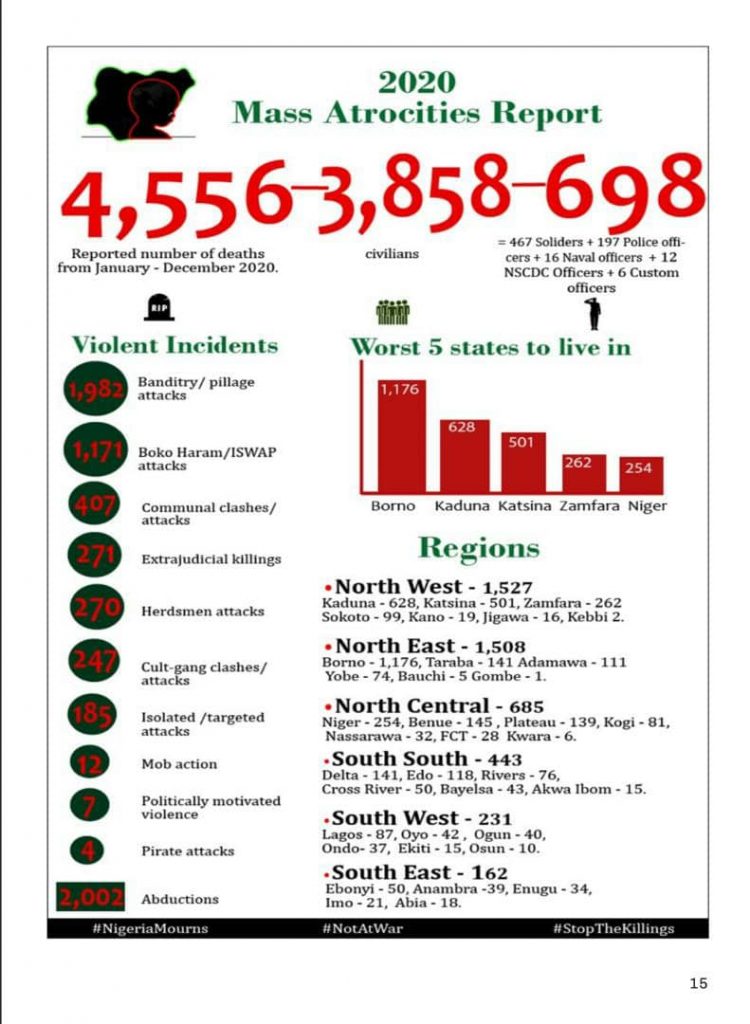
In 2020, Global Rights Nigeria, in its Mass Atrocities Report, revealed that 628 people were killed in Kaduna, making it the northwestern state with the most fatal victims of terrorism, with only Borno recording more deaths with 1,176.
In 2021, Kaduna’s figure rose to 1,192, almost doubling its 2022 figure.
In 2022, it recorded an attack in Kagoro, Kaura LGA, that claimed 26 lives; an attack on its international airport which claimed one life; and an attack on an Abuja-Kaduna train with 362 people on board in Rigasa, Chikun LGA of the state, with no fewer than eight casualties, and several other attacks.
El-Rufai may have asked the federal government to erect a theatre command in the state, but with 18 military and police formations spread across the state, one would imagine how much another formation would do.
In Kaduna, there exists the Nigerian Defence Academy, Army School of Military Police, Nigerian Navy School of Armament Technology, Nigerian Army Depot, Army Training Depot, Nigerian Police College, Nigerian Air Force Base, Nigerian Air Force Training School, Defence Industries Corporation, and First Division Nigerian Army.
There also exists the Air Force Institute of Technology, Nigerian Police College, Nigerian Air Force Base, Ground Training Command, Nigerian Military School, Nigeria Defense Industry, Nigerian Army School of Artillery, Armed Forces Command and Staff College, Nigerian College of Aviation Technology and Command Engineering Depot.
Produced in partnership with the Centre for Democracy and Development (CDD)
Subscribe
Be the first to receive special investigative reports and features in your inbox.


